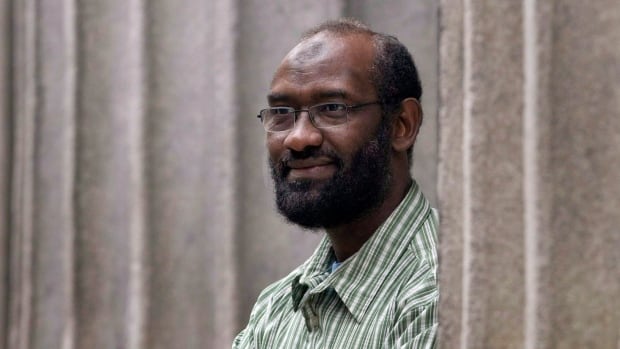After years of delays, a Canadian man’s lawsuit alleging the federal government was complicit in his detention and torture overseas is finally set to go to court this fall.
But before the trial can proceed, a judge must decide whether intelligence officials can testify behind closed doors.
Abu Sufian Abdelrazik was arrested while visiting his mother in Sudan in 2003. He spent the next six years in prison and in forced exile at the Canadian Embassy in Khartoum after his attempts to return to Canada were repeatedly rejected by the federal government, but he was never charged.
According to an agreed statement of facts, Canadian Security Intelligence Service officers questioned Abdelrazik in custody about suspected extremist ties. Abdelrazik denies any links to terrorism.
CSIS denies having asked Sudanese authorities to detain Abdelrazik, but court records show Sudanese authorities told Canadian diplomats that CSIS had requested his arrest.
Abdelrazik returned to Canada in 2009 after a Federal Court judge ruled his Charter rights had been violated and ordered his return.
His father, who lives in Montreal, filed a lawsuit that same year seeking $27 million in damages, alleging he was tortured in Sudanese custody and that the federal government violated his constitutional right to return home.
Abdelraziq has waited nine years for his trial, which was scheduled to begin in 2018. The trial date was postponed under the Canada Evidence Act to allow court officials time to review and redact hundreds of pages of documents, including emails and memos.
The court issued an order last summer suppressing 1,469 documents but allowing disclosure of vetted summaries.
A trial date has been set for next month, but there are final hurdles to overcome before the trial can begin.
Closing the Door to Protect National Security: Crown
Last month, prosecutors filed a motion seeking to allow six witnesses to testify in private “to avoid harm to Canada’s international relations, defence and national security.” The witnesses in question are current and former employees of the Canadian Institute of International Affairs, the Royal Canadian Mounted Police and the Canadian Department of Foreign Affairs.
Government lawyers have argued that the public and media should be excluded from the courtroom while the officials are testifying to “prevent the inadvertent disclosure” of protected secrets. They argue that the disclosure of certain protected information “would endanger the lives of current and former CSIS employees, colleagues and families, and adversely affect CSIS’s ability to operate.”
The motion suggests that recordings of the testimony of these witnesses be made public, with redactions if necessary.
Prosecutors point out that an Ontario Superior Court judge allowed certain witnesses to testify outside the public eye during the trial of former Royal Canadian Mounted Police officer Cameron Otis, who was convicted last year of violating security laws.
Prosecutors are also seeking orders to protect CSIS witnesses by allowing them to testify behind screens or by using technology to alter their voices.
Abdelrazik’s lawyers have opposed the motion, arguing that such an exceptional order is unnecessary.
In a written statement, Abdelrazik’s lawyer, Paul Champ, argued that the witnesses were “highly experienced in dealing with highly confidential matters” and that the inference that they might blurt out classified information was “speculative at best.”
“The principle of public trial is particularly important because this case involves alleged misconduct by senior government officials and complicity in serious human rights violations,” he wrote.
“There is strong public interest in hearings in this case where government witnesses will defend their actions.”
CBC News is seeking intervention in the case, arguing that the prosecution’s motion “unfairly restricts the principle of open court proceedings and infringes on freedom of expression and the press.”
The federal court is scheduled to hear arguments on the motion Wednesday afternoon.
